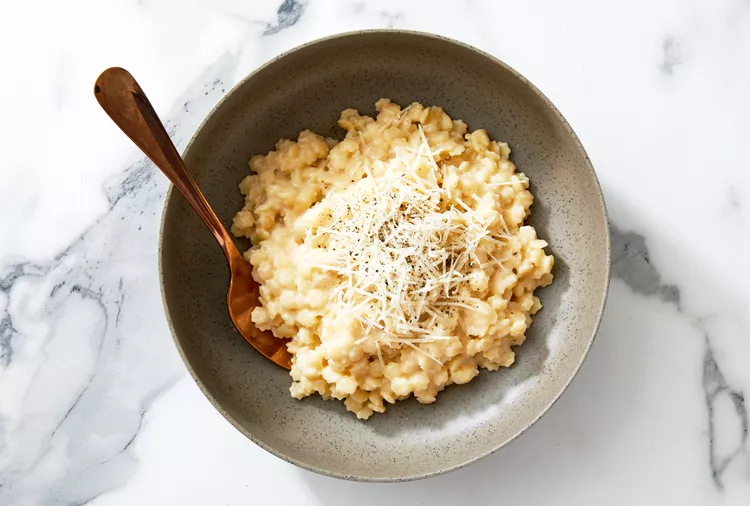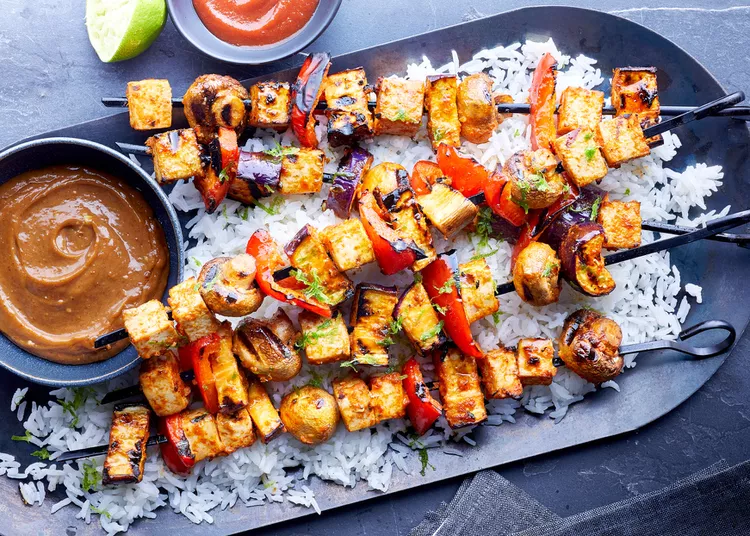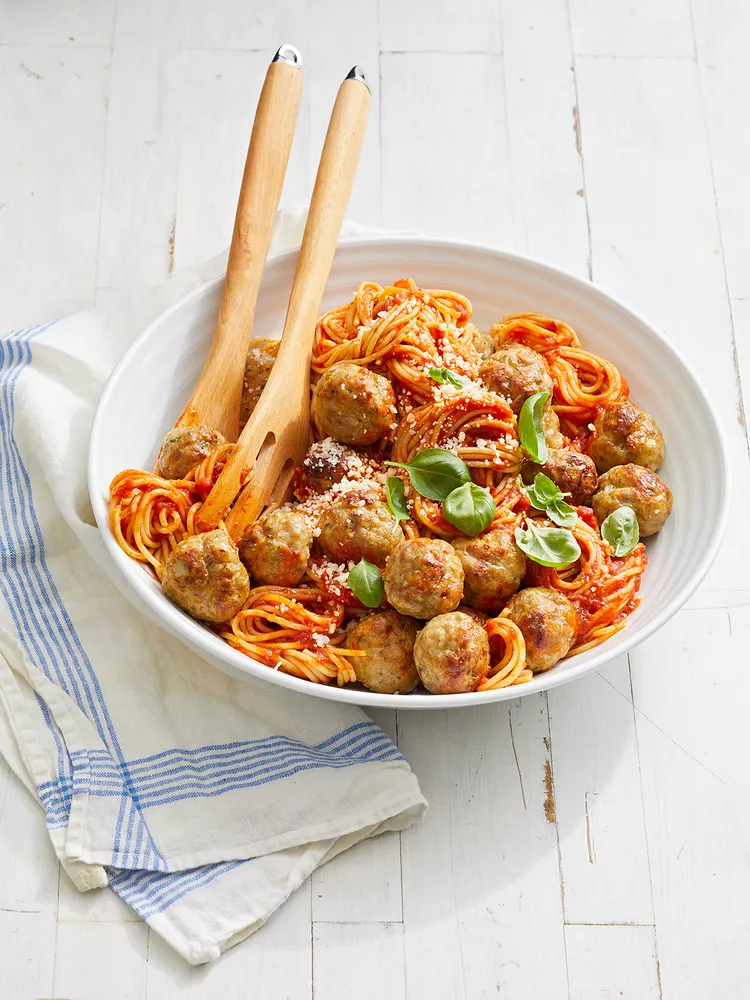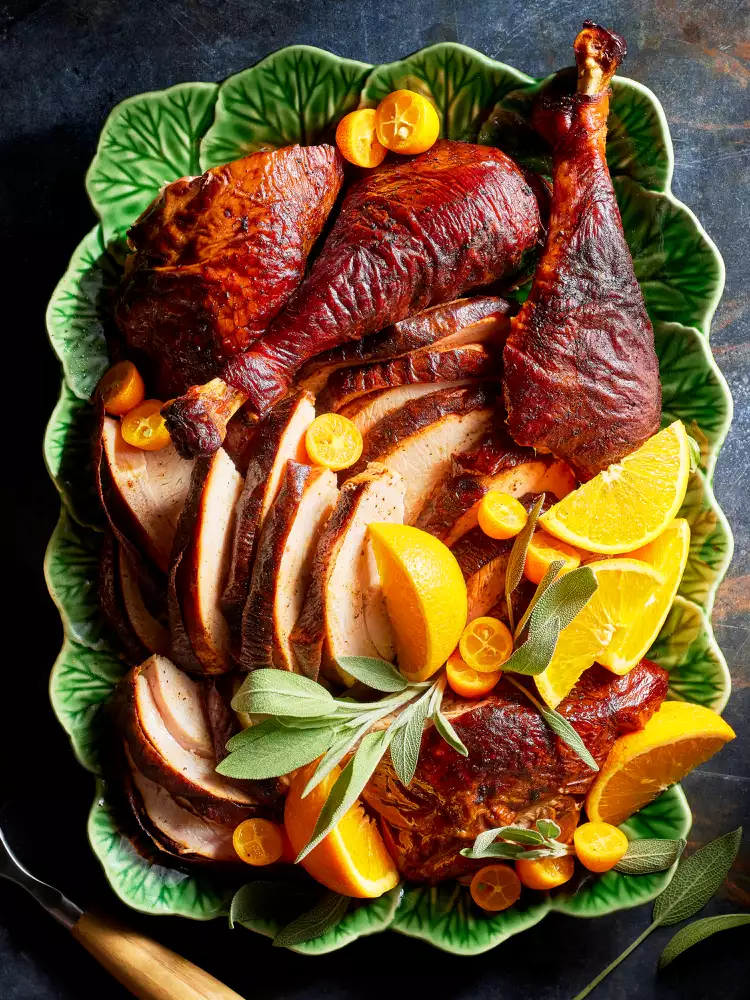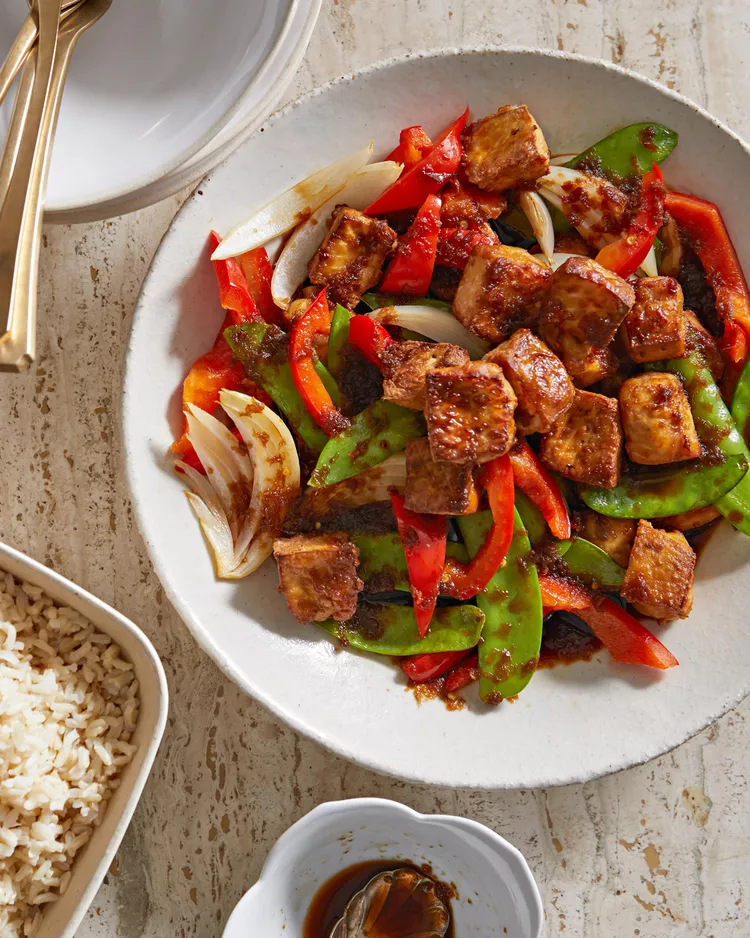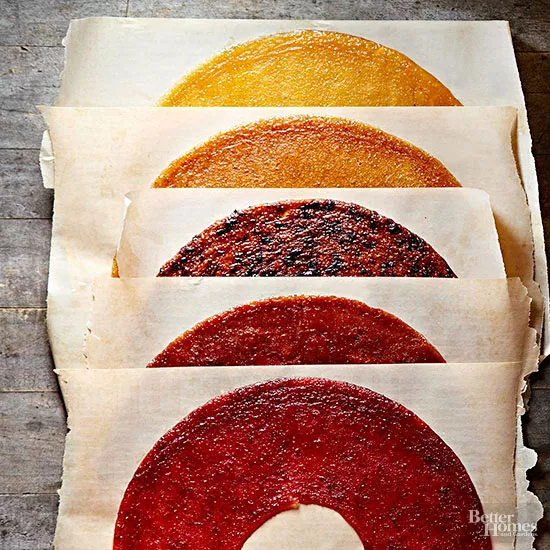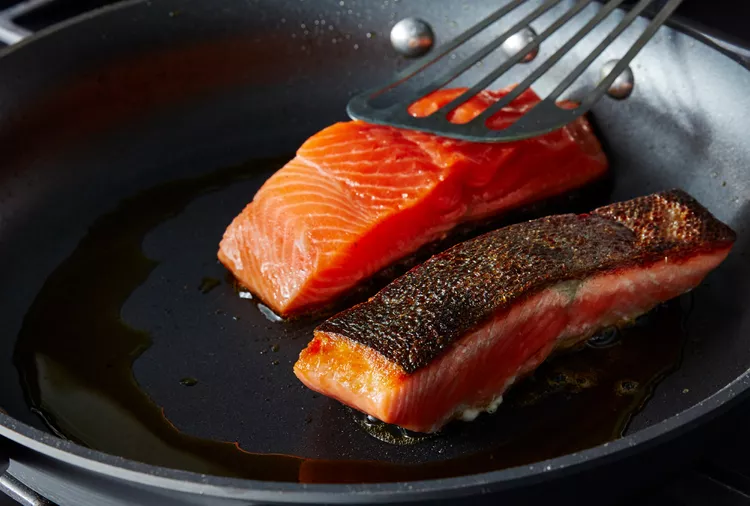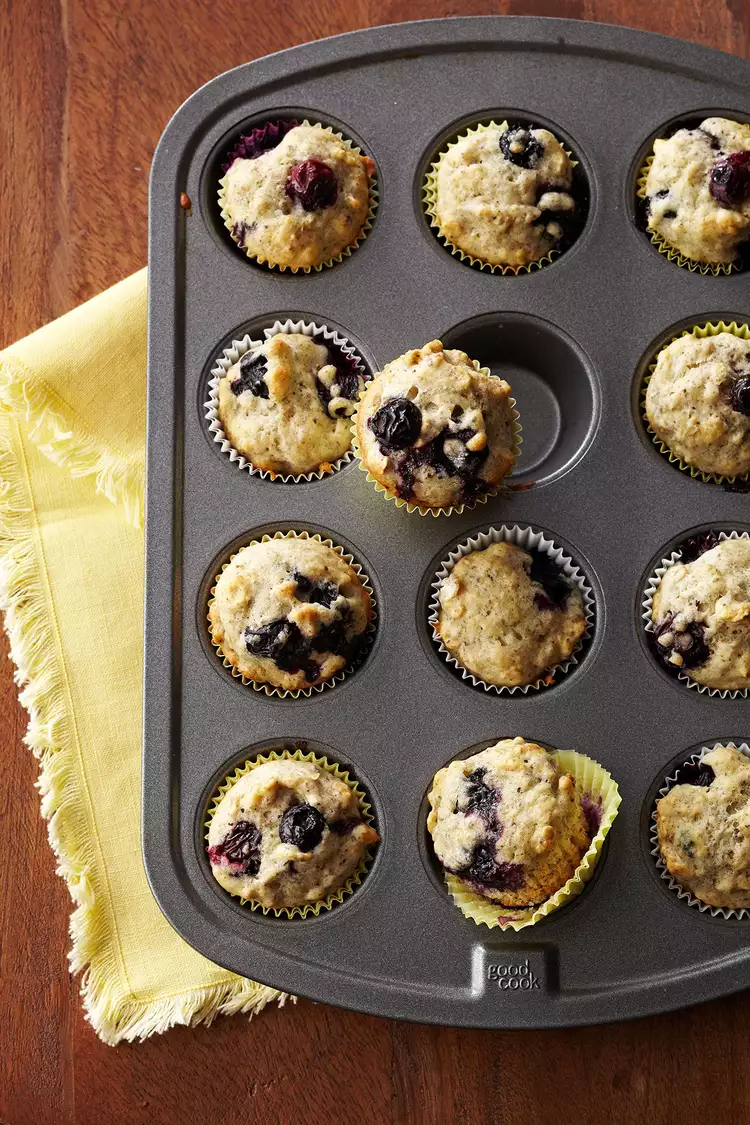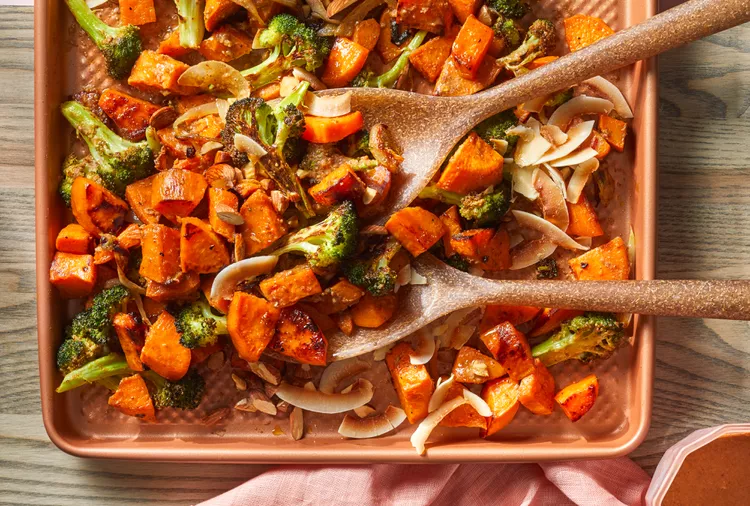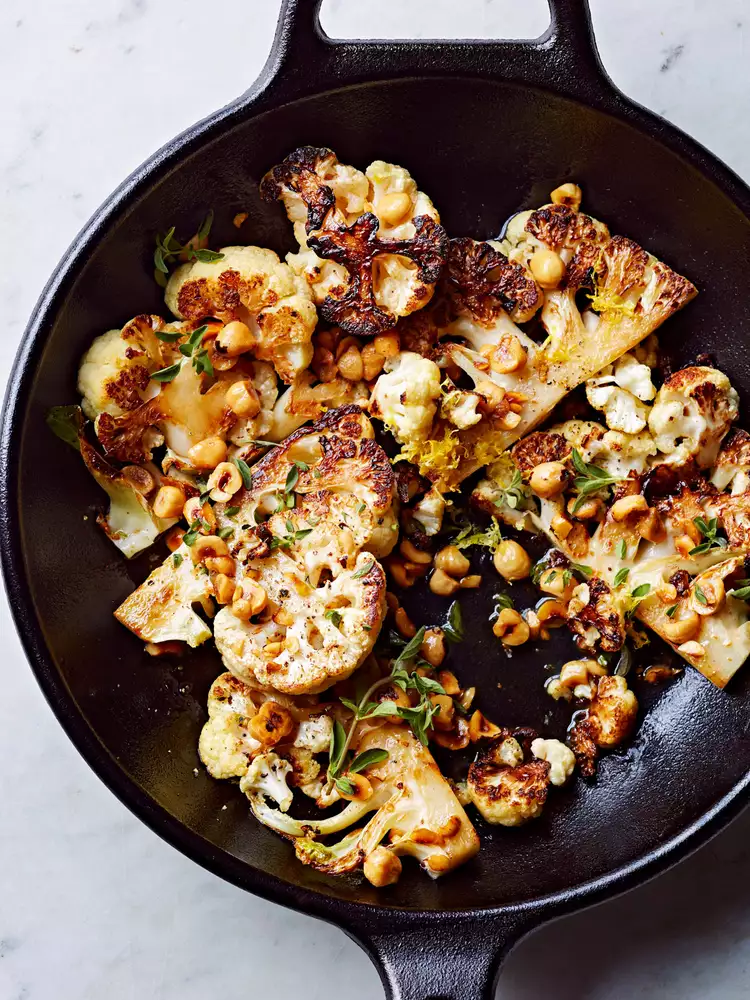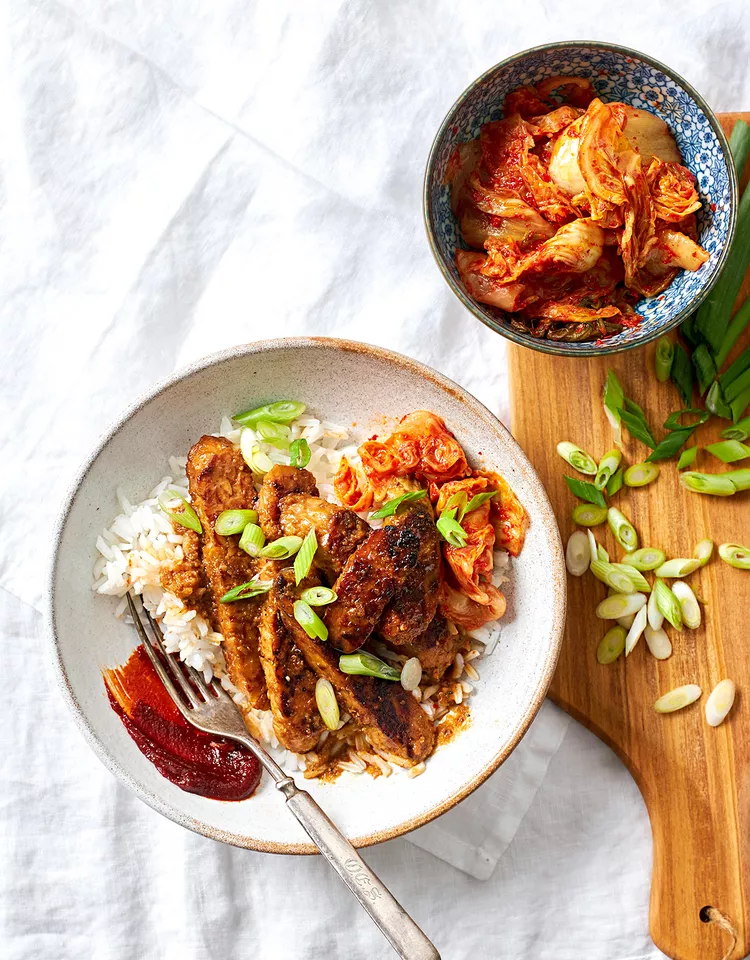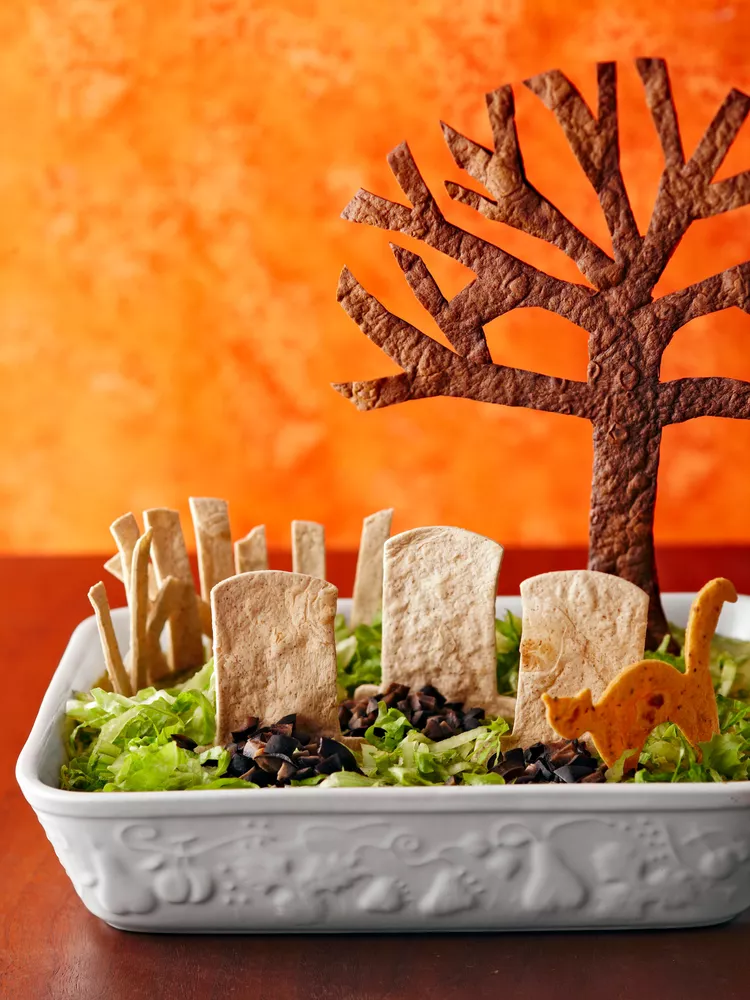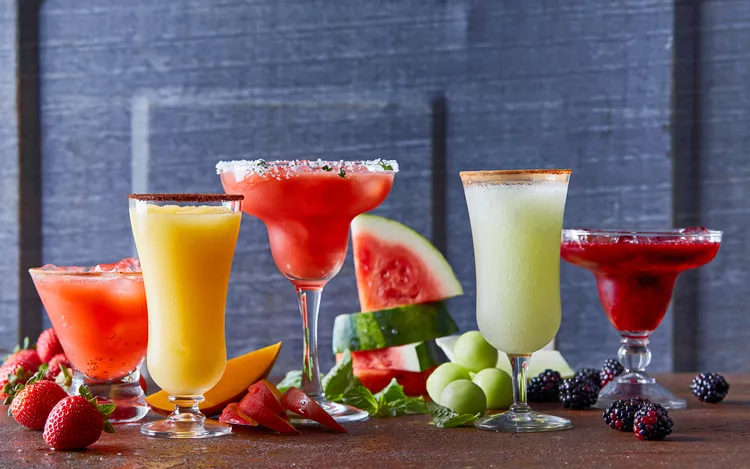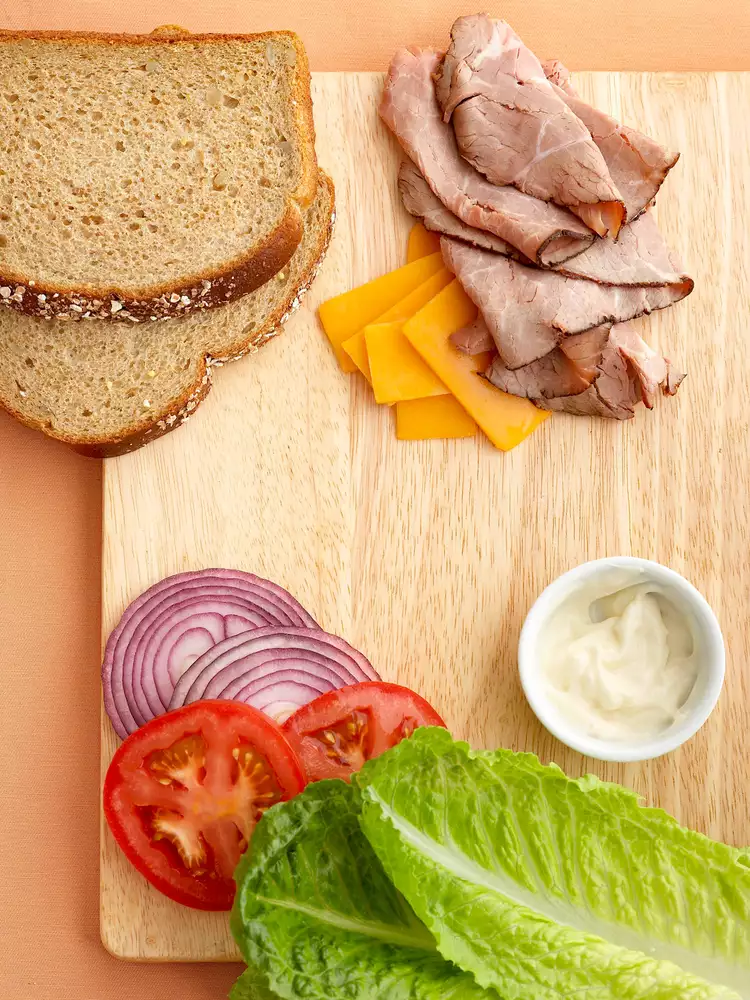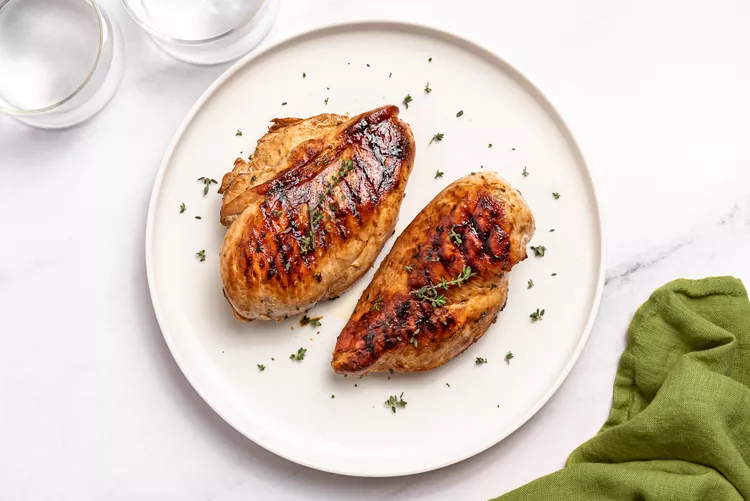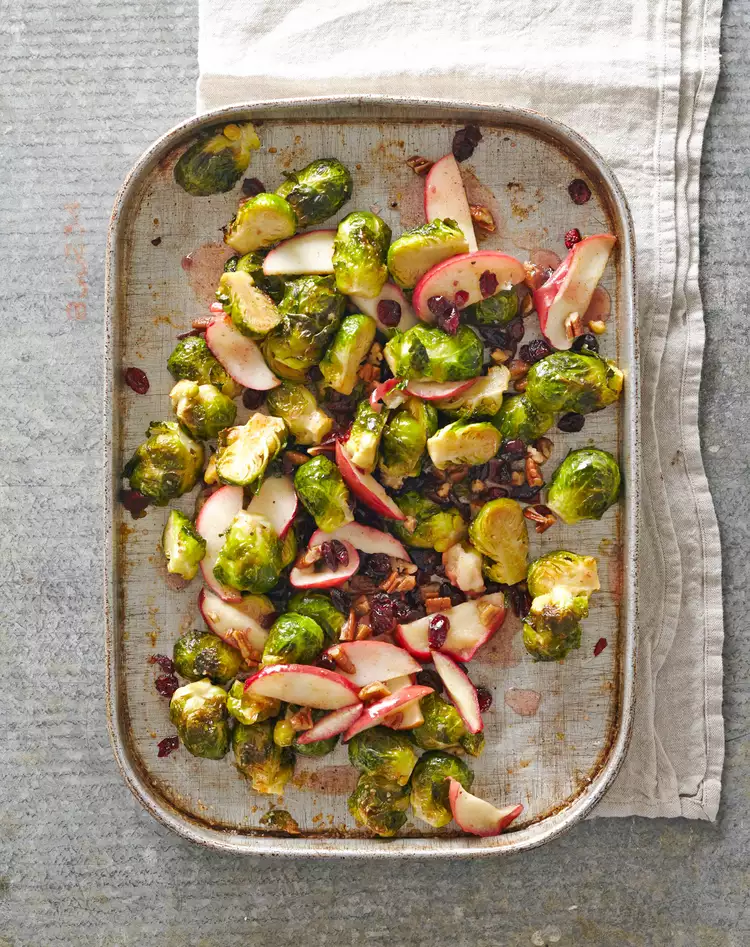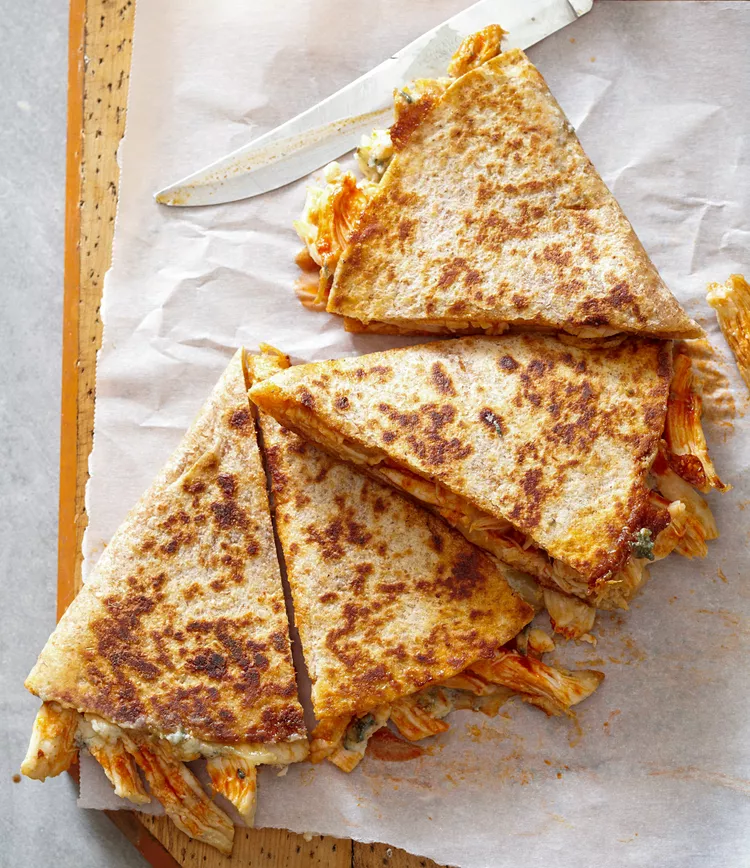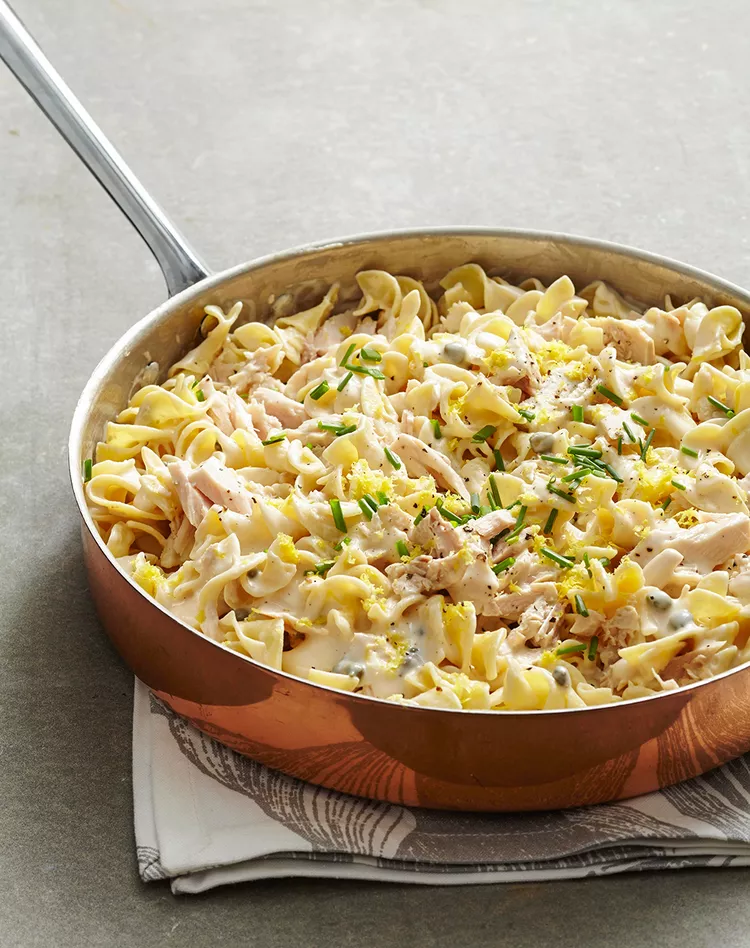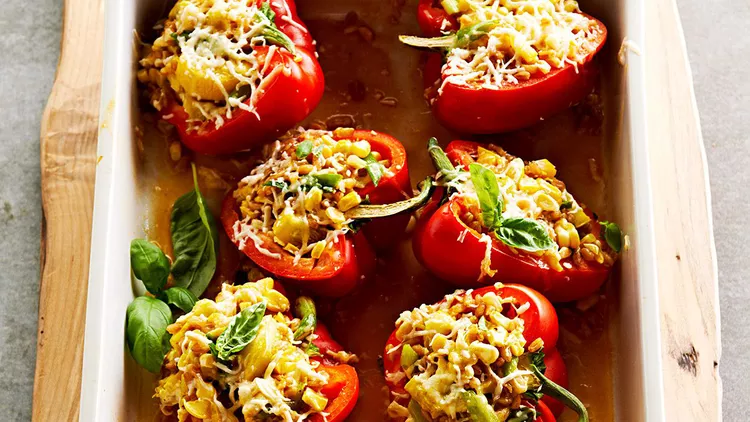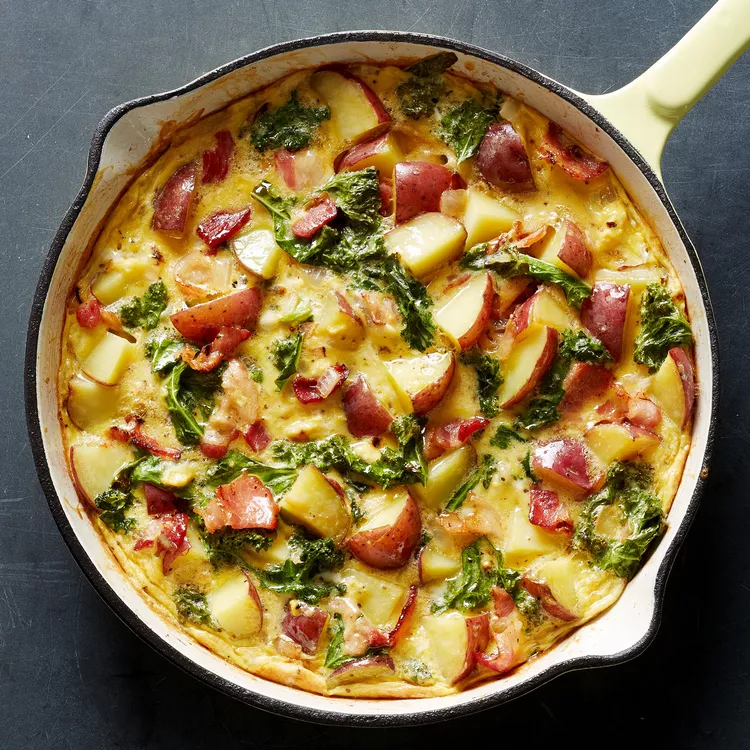Pastina is a broad term that applies to any small shape of pasta with a diameter of under 2 millimeters, whether round, cube, or star-shaped. The small size of pastina makes it ideal for adding into soups or stews, and to create risotto-like dishes. We used star-shaped pasta to create our version of a classic pastina recipe.
Pastina is also the name of a classic Italian comfort food dish, made with chicken broth, pasta, and Parmesan cheese. Like chicken noodle soup, it's a comforting and nostalgic go-to meal when Italians are feeling under the weather.
Making pastina starts with boiling the small pasta in chicken broth. We chose reduced sodium to help control the saltiness of the finished dish, but you can use your favorite brand of broth or make your own homemade chicken stock. Once the pasta is tender, stir in milk, butter, and grated Parmesan cheese. The results are rich, creamy, and satisfying. The creamy texture reminded our Test Kitchen tasters of a classic risotto made with chicken broth. Freshly cracked black pepper is the perfect finish, and a little extra grated Parmesan cheese doesn't hurt either. Serve this dish immediately, as it thickens up as it cools.
The Origin of Pastina
While pasta has been a staple part of Italian cuisine as far back as the Roman empire, pasta manufacturing became more industrialized in the 18th and 19th centuries, leading to a greater variety of pasta shapes. Pastina, small pasta shapes, became popular for their quick cooking time and versatility, and were often used for soups and other comforting dishes. Pastina was particularly popular for children, whether as the first solid food a child was given, or as comfort food in times of sickness.
Pastina, cooked pastina in broth, was often served as an affordable and satisfying dish during wars and other tough economic times. Other favorite variations can include pastina with butter and cheese, a beaten egg, or vegetables.
Ingredients
-
1 1/8 to 1 1/4 cups reduced sodium chicken broth
-
3/4 cup pastina or stelline pasta
-
1/4 cup milk
-
2 tablespoons salted butter, at room temperature
-
3 tablespoons grated Parmesan cheese, plus additional for topping
-
Freshly ground black pepper
Directions
-
Cook Pastina
In a small saucepan, bring the chicken broth to boiling. Add the pastina and stir well. Reduce the heat to low and simmer, uncovered, about 8 minutes or until the pasta is tender and most of the liquid has been absorbed, stirring occasionally; add a little more broth if desired.
-
Add Milk, Butter, and Cheese
Meanwhile, heat the milk in the microwave at 100% power for 10 to 20 seconds or until the milk is warm to the touch. Remove the pasta from heat and stir in the milk and room temperature butter. Stir well until the butter is fully melted and incorporated into the dish. Stir in 3 Tbsp. of the grated Parmesan cheese.
Test Kitchen Tip: Adding the warmed milk and room temperature butter to the cooked pasta enhances the creaminess of this dish. You won't want to skip this step.
-
Garnish and Serve
Serve the finished pastina topped with additional grated Parmesan cheese and freshly ground black pepper.
Test Kitchen Tip: For the best results, serve the pastina while warm. This dish thickens upon standing and will no longer be as creamy. If the pasta thickens too much, add a touch more warm milk to thin it out.
How To Store and Reheat Leftover Pastina
Reheat leftover pastina on the stovetop over low heat, adding an additional splash of broth or milk as needed to adjust the consistency, until hot throughout. You can also reheat in the microwave. Garnish and re-season as desired before serving.
Nutrition Facts (per serving)
| 478 | Calories |
| 30g | Fat |
| 37g | Carbs |
| 16g | Protein |
| Nutrition Facts | |
|---|---|
| Servings Per Recipe 1 | |
| Calories 478.1 | |
| % Daily Value * | |
| Total Fat 29.9g | 38% |
| Saturated Fat 18.1g | 91% |
| Cholesterol 80.4mg | 27% |
| Sodium 1138mg | 49% |
| Total Carbohydrate 36.9g | 13% |
| Dietary Fiber 2.3g | 8% |
| Total Sugars 4.2g | |
| Protein 16.4g | 33% |
| Vitamin D 0.8mcg | 4% |
| Vitamin C 1.2mg | 1% |
| Calcium 263.5mg | 20% |
| Iron 2.2mg | 13% |
| Potassium 426.8mg | 9% |
| Fatty acids, total trans 1.1g | |
| Vitamin D 33.4IU | |
| Alanine 0.4g | |
| Arginine 0.5g | |
| Ash 5g | |
| Aspartic acid 0.8g | |
| Caffeine 0mg | |
| Carotene, alpha 0.3mcg | |
| Choline, total 32.3mg | |
| Copper, Cu 0.2mg | |
| Cystine 0.1g | |
| Energy 2001.6kJ | |
| Fluoride, F 10.3mcg | |
| Folate, total 81.7mcg | |
| Glutamic acid 3.5g | |
| Glycine 0.3g | |
| Histidine 0.3g | |
| Isoleucine 0.6g | |
| Leucine 1.1g | |
| Lysine 0.7g | |
| Methionine 0.2g | |
| Magnesium, Mg 37mg | |
| Manganese, Mn 0.8mg | |
| Niacin 3.5mg | |
| Phosphorus, P 275.5mg | |
| Pantothenic acid 0.5mg | |
| Phenylalanine 0.7g | |
| Phytosterols 2.4mg | |
| Proline 1.5g | |
| Retinol 267.1mcg | |
| Selenium, Se 32.5mcg | |
| Serine 0.7g | |
| Starch 24.3g | |
| Theobromine 0mg | |
| Threonine 0.5g | |
| Vitamin E (alpha-tocopherol) 0.9mg | |
| Tryptophan 0.2g | |
| Tyrosine 0.5g | |
| Valine 0.7g | |
| Vitamin A, IU 1003.9IU | |
| Vitamin A, RAE 272.6mcg | |
| Vitamin B-12 0.8mcg | |
| Vitamin B-6 0.1mg | |
| Vitamin K (phylloquinone) 6.7mcg | |
| Water 382.8g | |
| Zinc, Zn 1.8mg | |
*The % Daily Value (DV) tells you how much a nutrient in a food serving contributes to a daily diet. 2,000 calories a day is used for general nutrition advice.
